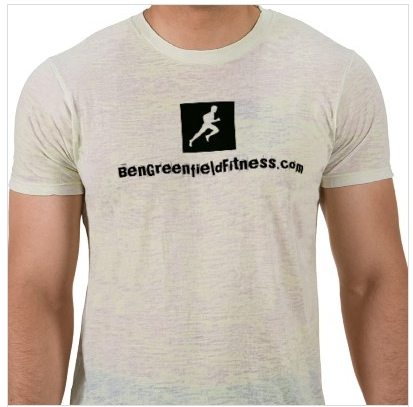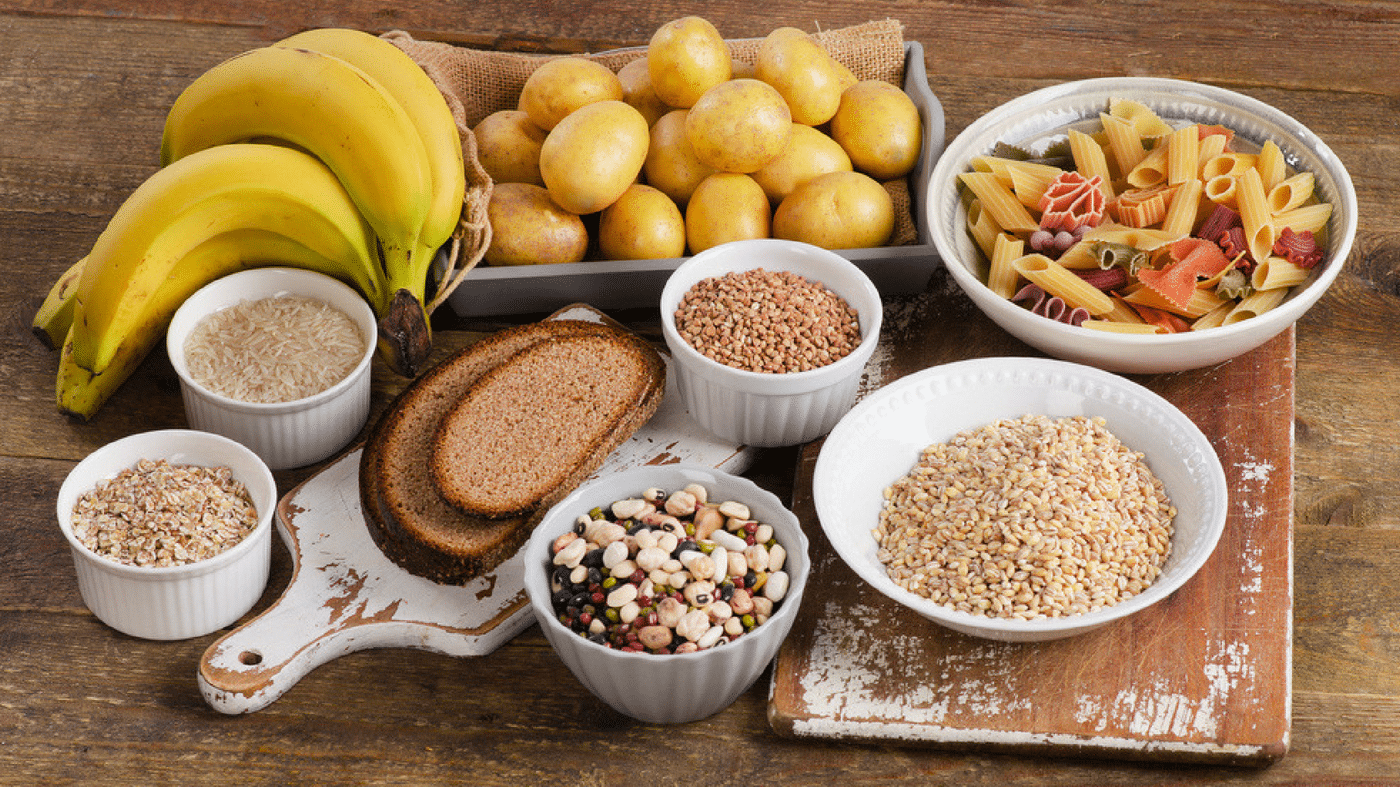July 27, 2011
Click here for the full written transcript of this podcast episode.
Do you have a future podcast question for Ben? click Ask a Podcast Question at the bottom of this page, Skype to “pacificfit” or scroll down on this post to access the free “Ask Ben” form…
In this July 27, 2011 free audio episode: Is an 80% carbohydrate diet healthy?, a good way to find out what is in the foods you eat, taking insulin during a workout, exercise stimulants that don't act like caffeine, a new electrolyte drink, excessively dry skin, hornet juice, reducing chafing, head and neck tension, and how thin is too thin?
Remember, if you have any trouble listening, downloading, or transferring to your mp3 player just e-mail [email protected] And don't forget to leave the podcast a ranking in iTunes – it only takes 2 minutes of your time and helps grow our healthy community! Just click here to go to our iTunes page and leave feedback.
—————————————————–
Special Announcements:
-New! Ben Greenfield's Shape21 Lean Body Manual is now on Facebook as an instantly downloadable app. Get access to the first seven days of Shape21 on Facebook for free by clicking here.
-Click here to donate $1 to keep this podcast going!
-Ben Greenfield's REV Diet now available from http://www.revdiet.com
-November 13: Come party with Ben in Jamaica! Jamaica Triathlon has a 20% discount code to register! Use code BGREENJAMTRI when you register at http://www.rosehalltriathlon.com.
-BenGreenfieldFitness Inner Circle is now just $1 for a 14 Day Sneak Peek! Click here to join now.
– Get insider VIP tips and discounts from Ben – conveniently delivered directly to your phone! Just complete the information below…
| First Name | |
| Last Name | |
| Cell # (1+area code) | |
Douglas Graham, author of the 80/10/10 Diet, is a lifetime athlete and raw fooder since 1978, and is an advisor to world-class athletes and trainers from around the globe. Dr. Graham has served on the board of governors of the International Association of Professional Natural Hygienists and the board of directors of the American Natural Hygiene Society. He is on the board of advisors of Voice for a Viable Future, Living Light Films, Vegetarian Union of North America, and EarthSave International and serves as nutrition advisor for the magazine Exercise, For Men Only. Dr. Graham is the raw foods and fitness advisor for VegSource.com, the largest vegetarian website on the internet. He taught the Health Educator program at Hippocrates Institute, served as the “source authority” for Harmonious Living, and authors a column for the magazines Get Fresh! and Vibrance (previously known as Living Nutrition).
During our interview, I ask Dr. Graham many questions, including:
What Is The 80/10/10 Diet?
What would a typical day of eating look like for the average person? What about for a highly active individual?
In terms of volume, how much fruit and vegetable must be consumed each day for adequate energy?
Should all the fruits and vegetables be organic, or does that matter?
How do the muscles and brain thrive on such low levels of protein and fat?
How do you respond to critics who say that fructose is a “poison”, or who vilify fructose?
Why wouldn’t you want to cook any foods – don’t some foods become more nutritious with cooking?
What type of nutrients might be missing in this diet, and how are those needs addressed?
Listener Q&A:
====================================== [contact-form 3 “AskBen”] ======================================
Craig has a call-in question about how to determine the macronutrient content of foods.
James asks: Could you recommend something to give a race day boost without affecting the sympathetic response? Or is this exactly what it has to do in order to be a stimulant? Also have you seen any research into type one diabetics using higher insulin levels during races to replenish glycogen?
Eva asks: I was wondering, what is your opinion of a new electrolyte drink, Sportaktive Easy electrolytes, as it compares to a product like Nuun. Sportaktive's website is www.Sportaktive.com.
Johny G. asks: i currently live in southwest florida and it is hot and very, very humid down here. i seem to have a problem with dry skin but not necessarily dehydration. my skin is so dry that i will scratch it till i bleed. i drink well over a gallon of water a day and only drink water. i do run in the beach often and usually in the middle of the day when it is the hottest. it doesnt bother me but i do seem to have this dry skin….any suggestions?
Ross asks: What is your opinion of using something like Hornet Juice or VAAM? Do they work or it is placebo effect?
Suzin asks: My boyfriend is training for the Ironman in Kentucky this August. We have been disagreeing about shaving to reduce chaffing in his private areas. I am aware of products like Dznuts but was hoping you could let me know where I can find any information about reducing chaffing/irritation.
Ken asks: I have been getting a lot of tension and knots in my neck and back of my head lately. I got really into my nutrition 2 months ago going all natural, no sugar, 1 cup of coffee in the morning. I can't seem to get rid of this tension though. What do you recommend?
Jack asks: Ben, how thin is too thin for endurance athletes? Obviously on average they are skinnier than the rest of the population, but where is the line where it becomes unhealthy or dangerous? I am more of a mesomorphic body type and have more muscle than average but very low body fat. I've been gradually losing weight as I increase training volume even though I am consuming 5,000-6,000 most days. Should I be avoiding fasted workouts, or do I still want to be able to burn more fat for fuel from a performance standpoint?
——————————————–
Remember, if you have any trouble listening, downloading, or transferring to your mp3 player just e-mail [email protected] And don't forget to leave the podcast a ranking in iTunes – it only takes 2 minutes of your time and helps grow our healthy community! Just click here to go to our iTunes page and leave feedback.
Brand new – get insider VIP tips and discounts from Ben – conveniently delivered directly to your phone! Just complete the information below…
| First Name | |
| Last Name | |
| Cell # (1+area code): | |
Did you know…you can get the new BenGreenfieldFitness.com t-shirt in any design and any price when you click here.
Here is the front…

And here is the back…

Click here to get the new BenGreenfieldFitness shirt, in whatever design and price you choose!



I haven’t been on a plant based diet long enough to claim it’s responsible for my performance shift but I have to say that Tim Van Orden — www.runningraw.com has done pretty darn well as an athlete since switching to fruits and vegetables. I would second the comments above the Michael Arnsteinaid also thriving on this diet.
Less fat you eat, faster you go. Simple as that.
Carb up to keep up. Last time I checked NOBODY runs out of fat or protein but you can run out of glycogen in 2-3 hours if you under carb.
Cutting back on carbs to save weight is like cutting back on pumping up your tyres to save energy! Its like drilling holes in your stem, cranks, rims and handlebars to save weight. Its putting your aero bars on your forks cos its more aero.
I really enjoyed this interview. I have heard Graham before, thinking he was a bit of a nut (and I agree with a lot of it) but he was much clearer in this interview. I too was puzzled by his VO2 max comments. While I agree with his macronutrient rationale, I disagree with his insistence on raw foods. The longest lived populations eat diets with a very similar macronutrient ratio, but of primarily cooked foods. One good example in the literature is the Tarahumara, whose ultrarunning was traditionally fueled by 90% of calories coming from two foods: corn and beans. Another is the largest concentration of centenarians, the Okinawans, who got 80% of their calories from starches: sweet potatoes, rice, millet and beans.
Well he offered to come back and nterview again so maybe he can answer the above questions? I always understood that excessive carbs (even fruits) leads to undesirable insulin response which in turn stores fat. I know he said that "You must first overeat on total calories in order to store fat." , but what is 'overeating' ? And what about the insukin aspect of it?
Do we need a formula to determine what is overeating? Think we can all tell. Idea is that the ratios of carbs/protein/fat, etc. is really unimportant if we're overeating everything.
Dr. Graham sounded a bit patronizing to me, quite impressed with how you seemed nonchalant about that and let him take the stage after he cut you off multiple times. I guess we have to respect him for his knowledge and not his interviewing skills… As for his actual concept on Vo2 Max reduction due to fat intake, he didn't make complete sense to me. It seemed like he was saying that we are all under performing, and we are just allowing ourselves to reach our ceiling potential by his diet? If someone could link me the study that proves that I would greatly appreciate it.
I've been looking for such a study and I'm thinking it's bull. Not sure such a study exists.
I ate SAD for most of my life and then paleo for a DECADE before arresting on a tennis court during a USTA match. I was lucky enough to be given cpr by a cardiologist playing on the other team and survived. Two years later, I am back to endurance training and races. For that two years, I have been 100% plant based -no refined oils. See Caldwell Essylstyn's website (Cleveland Clinic doc who proved with a landmark study that plant based arrests and reverses cardiac disease). Saying I am paleo and therefore I disbelieve is ideological. It is also wishful thinking since that diet is not proven to be cardio-protective. I have followed Art Devany since the late 90's and respect his intellect and fitness, but in my opinion he cherry picks studies. See the accomplishments of Brendan Brazier and Rich Roll. I'm not saying everybody needs to be plant-based, but I do insist that it works and ameliorates heart diease and probably many other maladies.
In addition to Esselstyn's work on fat content, see also Dr. Robert Vogel's research on the immediate endothelial injury of high fat meals.
Art Devany chews more roids than Lance.
Doesnt make em bad people but it sure does make for confusing results.
Ive never seen such a study but Ive seen it in myself. I went from 67 to 78 tested using same protocol and same weight at the AIS and the Underdale Campus.
Why wait for the science to 'prove it' when you can do a Dr Ferrari style test using power out put up a 20min climb and see if your EPO/fruit dosages are correct? Im trusting you have a power meter BG!
I will do another Vo2 test and put it on youtube for the skeptics.
I was a bit take aback by his stance on VO2 max. I suspect the articles he finds relate to people who switch to high fat/paleo for say a week and find performance decreases. Basically experiments which are way too short to allow for proper adapdation. He ought to read Loren Cordain's Paleo for the Athlete.
As an aside Doug McGuff has an interesting anecdote about the specificity of VO2max on pg 40-41 of Body by Science which seems counter to what Dr. Graham was saying.
Another book I suspect the Dr. Graham hasn't read is Catching Fire by Richard Wrangham which has an excellent evolutionary take on why we are better off with cooked rather than raw food and when it developed. He also backs up Ben's attempted discussion about relative gut size of various animals. Dr. Graham's response to Ben's question reminded me of a politician avoiding answering a question he was unprepared or unwilling to answer.
I am still waiting for a convincing Vegan/Vegetarian argument. There might be some out there (maybe….)
Like Greg, I'm a paleo athlete and was appalled at his lack of knowledge. I could go on all day about why almost everything he said is just plain wrong, but I'm going to write an article instead.
I like the whole foods, simple, easy approach, but his logic is nonexistent. I would love to see some of the studies he referenced as well.
-Armi
I was amazed the way he explained his fructose debate. He produced no clinical evidence or studies that back up his information. Being a paleo athlete it is obvious I disagree with his stance, but unlike Mat Lalonde, Robb Wolf, or Gary Taubes he does not provide the biochemical pathways to explain his rationale. I would have like to see you push him a little harder from the aspect of providing research. It is always interesting to hear someone eldest approach to furling their body.
Gary Taubes has a gut. He says that exercise and carbs make you fat. I ran a 5k XC race at VCP last night and finished top 10. I didnt see any fat front runners lol!
Carbs are king. Train smarter vs harder and stay away from fad diet book authors that can even run a fast 5k let alone a marathon.
I enjoyed the interview, Ben, particularly Dr. Graham's "keep it simple" approach. He made a great comment "You must first overat on total calories in order to store fat." Dr. Graham went on to explain that it's really hard to overeat fruits and vegetables. Sage advice there. Reminds me of Olympic marathoner Deena Kastor saying "I eat whatever I want, I just always choose healthy, clean foods." (I paraphrased that). However, I think Dr. Graham's protein requirements are a bit low for endurance athletes that need considerably more protein that the average to rebuild and retain lean muscle. Athletes need not fall for the "carbs are evil" mantra. Beware the extremes.
Beware the extremes. Make four-fifths of your diet come from one macronutrient.
Ive been a vegan for over 10 years. Riden over 190 000km. Ive trained with Lance. Ive had lunch with Cadel. These guys aint vegans yet they still take protein powders lol!
'you cant get enough protein as a vegan..'
It as funny as Ben Greenfield saying that '400-600cals a day coming from carbohydrates is sufficient to support athletic performance..'
fcuk'n newbies. ;)
400-600 calories of carbohydrates is what the body needs baseline for brain, kidney function, etc. Athletic performance is another matter. But remember the body makes carbs out of proteins and fats.
Hey BG. So are you saying that all you need is to eat 4-6 bananas(400-600cals of carbs) a day and the rest coconut oil and cow butt and you can set pb's?
You ever bonked before on the bike or in a run? Is that cos you ran out of fat, protein or carbs? Ever wondered why ZERO elite athletes run a low carb diet? Ever wondered why none of the carb phobic diet book authors have any decent cardio fitness?
I have. Carb up or get spat out the back. Simple as that. ;)